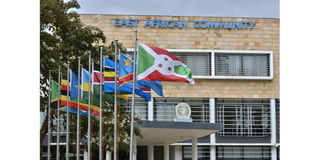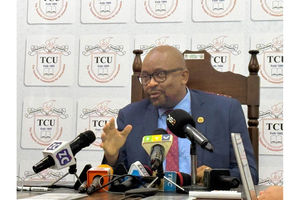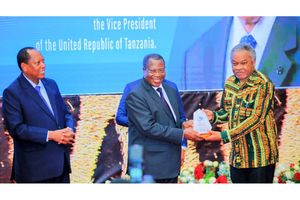EAC establishes priorities to prevent future budget crisis

EAC headquarters
Arusha. Six months before the next annual budget is tabled, the East African Community (EAC) has set priority areas for its expenditure.
This time around, the fast-expanding regional body aims to prepare and implement a budget geared towards ending persistent cash woes. The estimates for the 2024/25 financial year should also strengthen governance mechanisms to maintain stability in the eight-nation bloc.
The priority areas for the financial expenditure for 2024/25 were unveiled during a recent pre-budget regional ministerial meeting held here.
Although it was too early to reveal tentative figures, various units of the EAC were urged to be focused on their priorities and targets. This, the ministerial meeting insisted, would forestall a situation where key integration projects would miss being implemented.
On June 13, this year, the EAC tabled a $103.8 million budget for 2023/24 fiscal year, which ends on June 30, 2024, which was the highest in the last four years.
Out of the amount, $51.4 million was to be a combined contribution by seven member states, while the balance (about $52 million) was expected to be raised by donors and other sources.
Each of the seven member states in the bloc is supposed to contribute $7.3 million to fund the 2023/24 budget.
Procedurally, the EAC budget has to be tabled before the East African Legislative Assembly (Eala) for debate and subsequent approval for implementation (expenditure).
Prior to that, the estimates have to be scrutinized by Eala’s General Purpose Committee (GPC), one of the six Standing Committees of the House.
Members of GPC normally attend the EAC pre-budget conferences alongside delegates from the partner states and the EAC organs and institutions.
The 2023/24 budget estimates for the Community, however, could not be implemented even as they were approved by Eala due to some irregularities.
It was not until early October that the quagmire ended when the estimates were reconsidered afresh, the delay of which deepened the EAC’s cash woes.
This time around, however, the pre-budget meeting wants the Community organs and institutions to embrace sector-specific approaches, partly in a bid to forestall such crises.
It was observed during the recent pre-budget conference that the sector-specific priority areas in the matrix of EAC programmes were duplicated.
This, according to a dossier from Eala, was more pronounced, with the EAC organs and institutions now being advised to prioritise their undertakings.
It was further observed that delayed finalisation of the sustainable financing mechanism continues to affect the implementation of EAC programmes.
The pre-budget consultations, which attracted ministers from the partner states, identified infrastructure and investments as among the priorities.
Multi-sectoral infrastructure development aims to improve connectivity in the region’s transport and ICT networks to facilitate timely services.
It was further stressed that a mechanism should be put in place to ensure interconnectivity between roads, railways and airport infrastructure.
Cross-border investments from outside the bloc will be promoted alongside intra-regional trade through an enabling business environment. The conference was convened to deliberate and agree on the community’s sector-specific priority areas and targets for the budget.
The ministers agreed to accelerate harmonisation of fiscal and monetary policies towards attaining prerequisites for the East African Monetary Policy.
The productive and social sectors should be enabled to increase productivity and raise the standards of living for East Africans.
The EAC secretariat was urged to fully mainstream gender, youth and persons with disabilities (PWDs) issues in the planning and budgeting process.
The organs and institutions, on the other hand, embrace a regional approach in developing sectors related to the blue economy and climate change.
Much as the EAC budget estimates have been approved without hitches, as was the case this year, questions have remained on the remittances from the partner states.
There have been increasing concerns about the countries that fail to make timely remittances to the Arusha coffers, paralysing the day-to-day operations of the regional body.
Even after the passing of the stalled $103.8 million budget for 2023/24 in October, which was delayed for nearly four months, EALA members remain concerned by the limited contributions by some partner states.
“The Community continues to make unrealistic budgets owing to delayed or non-remittance of funds by some countries,” said Kennedy Ayason Mukulia from South Sudan.
Mr Mukulia, who is the chairperson of Eala’s Committee of General Purpose, said efforts to sanction non-compliant states have equally failed. Sanctions against countries that do not honour their financial contributions have been made countless times by regional lawmakers.




